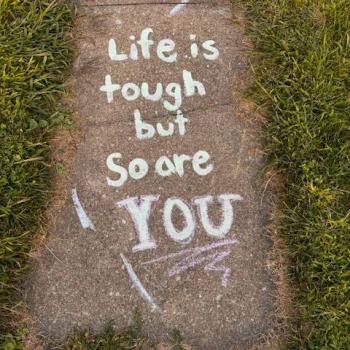I have the privilege to sit across around one hundred people per month and hear all sorts of stories, tragedies and victories. I have been doing this in some capacity for the last twenty-four years. A lot has changed in the world since my beginning. I have noticed that people are more calloused, emboldened, entitled and ignorant. I want to sit for a moment with the notion of ignorance.
It is not an Insult
Perhaps the most famous example of ignorant people struggling with the truth comes to us from Plato’s allegory of the Cave. Briefly:
Human beings dwelling in the darkness of an underground cavern, bound at the legs and neck so that they cannot move, even to turn their heads. They have no other memory of life, since they have been imprisoned in this way since childhood. Before them, they see only moving shadows that are cast by objects unknown to them, illumined by a flickering fire that we are told lies somewhere behind them. They know nothing of this except the shadows and hear only echoes from the voices of their keepers, whom they have never seen. In such a benighted state, they pass their days.
It has been a strange ten years. The last five though were particularly weird. The COVID pandemic and now religious and geopolitical tensions here in America and around the world have brought an intense fear to many. One of my ongoing statements to my clients is that it is our job as parents to create meaning for our children. When we do not create meaning, our children create their own. This not only works in family systems but also for social systems as well. When a system fails an individual and is not there for them, co regulation cannot happen and then sometimes pathological thinking sweeps in, creating problems.
The meaning that many have created for themselves is that they are not safe. Unfortunately, for many of these people, they have never been safe because of the color of their skin, their gender or their sexual orientation. For many, fear both imagined and real has imprisoned us.
Poverty
In this week’s discussion on how to discuss compassionately and respectfully about issues of tension right now, I want to discuss poverty. One of many things I try to do in my role as a professor at our local Community College is combat ignorance. Much of what I do as a therapist is the same. Throughout my career as a pastor, I was often told I was too intellectual and should preach to my congregations like they have an eight-grade education. It is this attitude of chosen ignorance that has gotten us where we are now.
Some definitions:
- Poverty is the human condition of being unable to obtain or provide a standard level of food, water and/or shelter for you or your family.
- It exists in every country to varying degrees and is unlikely to disappear any time soon. The United States is considered the richest country in the world, and yet 37.9 million (11.5%) of its residents live in poverty.
- Poverty is measured in two ways – absolute poverty and relative poverty.
-
- Absolute poverty looks at the goods and services someone (or a family) cannot obtain.
-
- Relative poverty looks at the context of the need, how one social group compares to others.
- The official method of calculating America’s poverty levels was developed in the 1960s and has not been refined substantially since then. Critics maintain that the government overstates the U.S. poverty level because it counts people as impoverished who in generations past, would be considered as not living in poverty.
- The highest poverty rate on record was 22% (1950s). The lowest was 10.5% (2019).
Other Statistics:
- Among the most impoverished are:
- Those living in female-headed households with no husband present (23%).
- Young adults without a high school diploma (25.2%).
- Those living in a family whose head of household is unemployed (30%).
- Minorities (19.5% for Black people).
In Latin American liberation theology, there is the idea that the poor are those who die before their time. In Judaism, sinfulness is seen as a separation in some way of one from their community. Our sinfulness as modern Christians is that we have created a marginalized or poor people through our toxic theologies around sinfulness and brokenness. On my side of the chair, many people I talk to do not go to church because of the strict adherence to binaries and rigid adherence to doctrine.
Are the poor to blame for being poor? Why can’t they just “pull themselves up by their bootstraps” as my grandmother’s generation would say. “What is wrong with people today? There are plenty of jobs to be had”. These are only but a few of the negative words I have heard in my career around poverty (Especially from well-meaning church folk). After 24 ish years of work as a social worker, pastor and therapist, I have seen a lot of reasons why people can’t work and why and how systems keep people enslaved in a cycle of poverty.
Poverty has no rigidity and can strike a person or family very quickly. Towards the end of my first career, my family was momentarily “homeless” and then we had to declare bankruptcy. The kids relied on the kind donations of the community for Christmas gifts, and we relied on food boxes from local churches and food pantries for about six years until we began to get back on our feet.
A Better Conversation
Let us start our conversation with this simple quiz.
To begin our ability to have better conversations, civil discourse, we need education in manners and emotional intelligence. Unfortunately, “despite the benefits, incorporating emotional intelligence into schools faces certain challenges. Limited resources and curriculum constraints often result in a heavy focus on academic subjects, leaving little room for comprehensive emotional intelligence education. Additionally, many teachers may not have received adequate training or awareness regarding the importance and methodologies of emotional intelligence instruction. Moreover, standardized testing pressures often prioritize academic outcomes over the holistic development of students.”
In my tradition of Methodism, we did a lot to spread the Gospel and education westward as the country grew. Wesley emphasized the importance of community and social action in Christian faith. He believed that true Christianity involved not only personal devotion but also active engagement in the lives of others. This meant caring for the poor, the sick, and the marginalized, as well as working for social justice.
Wesley’s emphasis on social action was groundbreaking for his time. He founded societies for the relief of poverty and established schools for the poor. He also encouraged his followers to form small groups, called “classes,” where they could support one another spiritually and socially.
While Wesley did not use the exact phrase “no religion but social religion,” his emphasis on the social dimensions of faith aligns with this idea. He believed that a true Christian life involved both personal piety and active service to others.
As Churches, we need to exist as a church for the people, not exist as ideas for how church should be or even how the church should “look” like. Civil discourse isn’t just about polite conversation. It’s a vital ingredient to better public policy and public leadership. Being civil has nothing to being weak in character, it has more to do with being strong in spirit.













